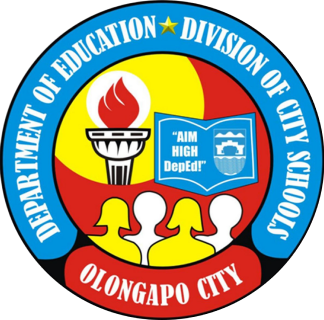BY GLENN D. TIPAY, EPS-II SMN
In a proactive move towards strengthening safety measures within educational institutions, a comprehensive “School Contingency Planning for Fire Incident” initiative was recently conducted on March 1, 2024 at the Traveler’s hotel, SBFZ.. Spearheaded by Erwin A. Castillejo, Project Development Officer II/DRRMFP, this critical activity brought together prime stakeholders to strategize and implement vital protocols aimed at effectively responding to fire emergencies in schools.

Outlined within the initiative were several objectives aimed at fortifying the preparedness of schools in the face of fire incidents. These objectives encompassed a range of actions including establishing response protocols, implementing early warning systems, coordinating with relevant stakeholders, facilitating reunification processes, ensuring educational continuity, and enhancing overall safety and security measures.
Participants, consisting of School Heads, School Disaster Risk Reduction and Management (DRRM) Coordinators, administrative personnel, and representatives from the Schools Division Office (SDO), gathered to analyze the variety of contingency planning. Dr. Ramil G. Gonzales, EPS SGOD, set the tone for the session, emphasizing the proactive nature of planning in mitigating fire-related risks.
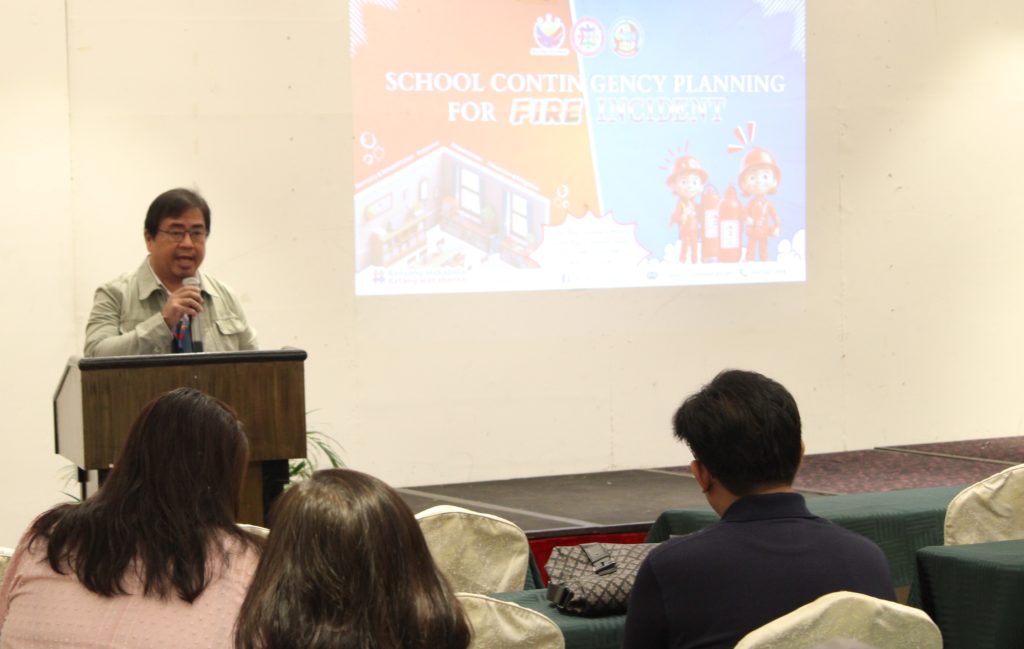
Dr. Imelda P. Macaspac, Officer-in-Charge of the Schools Division Superintendent, inspired attendees by stressing the collective responsibility of educators and administrators in safeguarding the welfare of students.
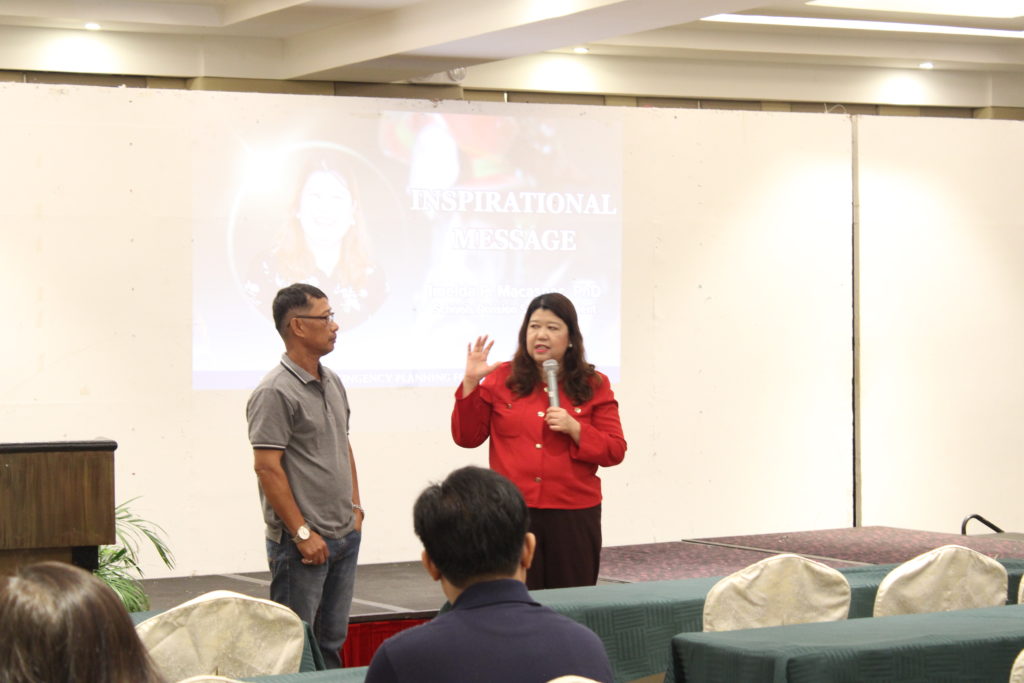
Ricardo E. Ednave, Chief of the Schools Governance and Operations Division, emphasized the primary objective of this activity, emphasizing the critical need for comprehensive planning to ensure effective responses to fire incidents within educational institutions. Juvimin O. Mustar, Administrative Officer V, provided invaluable insights into the fundamentals of contingency planning, underscoring the importance of meticulous preparation and foresight.

Robin Carlo Elepongga, Supervising Administrative Officer in Research and Planning from the City Disaster Risk Reduction and Management Office (DRRMO), offered guidance on tailoring contingency plans to suit the unique settings of educational institutions. Additionally, FSUPT Roderick DJ Marquez, City Fire Marshall, shared crucial insights gleaned from fire safety assessments, reinforcing the importance of adherence to fire prevention and response measures within school premises.
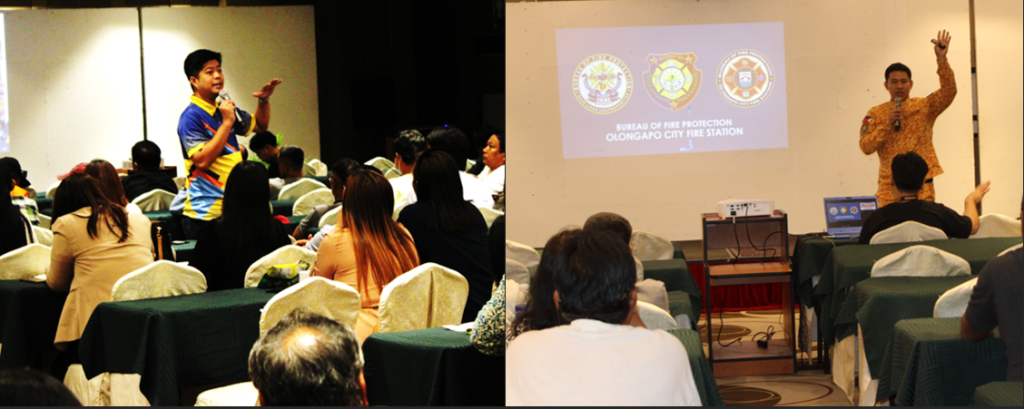
Engr. Justin Espiritu, Division Engineer, contributed to the discourse by addressing electrical safety at schools, and imparting rules and tips for students and staff to mitigate electrical hazards.
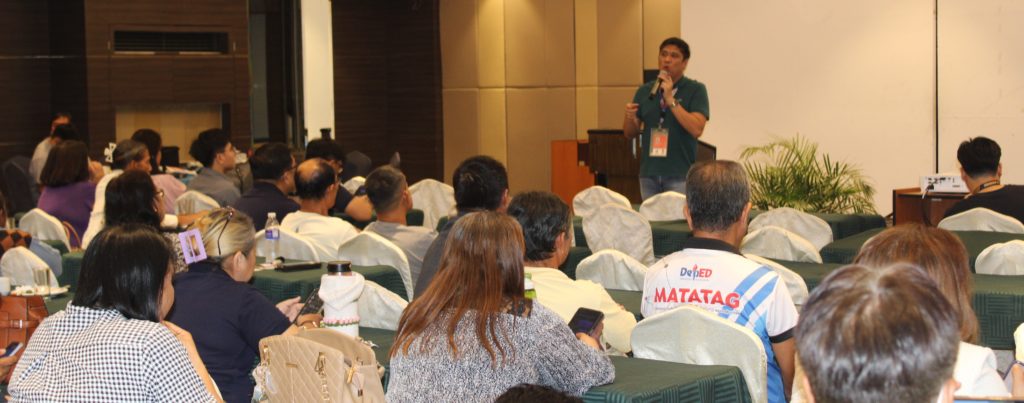
The collaborative efforts witnessed during this initiative underscore the unwavering commitment of educational institutions and emergency response agencies toward prioritizing safety and preparedness. By equipping schools with the necessary tools, knowledge, and protocols, stakeholders aim to minimize risks and foster a secure learning environment for all students.
This concerted effort serves as a testament to the proactive approach adopted by the education sector in ensuring the well-being of its constituents, further solidifying the notion that safety remains paramount in the pursuit of academic excellence.
